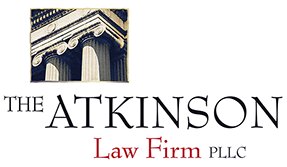Best Assault & Battery Lawyers in North Carolina
Share your needs with us, get contacted by law firms.
Free. Takes 2 min.
Or refine your search by selecting a city:
List of the best lawyers in North Carolina, United States
About Assault & Battery Law in North Carolina, United States
Assault and battery are considered criminal offenses in North Carolina. These terms often appear together, but they refer to distinct actions under state law. Assault generally occurs when someone threatens or attempts to inflict physical harm on another person. Battery, while not a separate charge in North Carolina, essentially refers to the actual act of unwanted physical contact or physical harm. In North Carolina, most cases are prosecuted under various forms of assault, ranging from simple misdemeanors to serious felonies, depending on the circumstances and severity of the incident.
Why You May Need a Lawyer
If you have been accused of assault or believe you are the victim of an assault, seeking legal assistance is crucial. Common situations that require legal help include:
- You have been arrested or charged with assault-related offenses
- You have been served with a summons or protective order related to alleged violence
- You need to defend against false accusations of assault or battery
- You are a victim seeking to press charges or obtain legal protection
- Your case involves aggravating factors, such as the use of a weapon, serious bodily injury, or a vulnerable victim
- You could face civil liability in addition to criminal charges
- You are navigating complex legal challenges, such as self-defense or defense of others claims
Legal consequences may include fines, jail time, restraining orders, mandatory counseling, or a permanent criminal record. An experienced lawyer can help protect your rights, explain your options, and work toward the best possible outcome.
Local Laws Overview
North Carolina recognizes several types of assault-related offenses, each with unique definitions and penalties:
- Simple Assault: The attempt or threat to injure another person, considered a Class 2 misdemeanor without serious injury or special factors.
- Assault Inflicting Serious Injury: An assault resulting in serious bodily harm, treated as a Class A1 misdemeanor.
- Assault with a Deadly Weapon: Using or displaying a weapon during an assault can elevate charges to a Class A1 misdemeanor or even a felony if injury or intent to kill is alleged.
- Assault on a Female, Child, or Government Employee: These offenses are taken more seriously and can lead to higher-level misdemeanors or felonies.
- Aggravated Assault: When the offense includes extreme violence, use of a deadly weapon, sexual assault, or significant injury, the crime may rise to felony levels.
Convictions may result in fines, incarceration, probation, mandatory anger management, and a permanent criminal record. Outcomes depend on the type of offense, circumstances, history of offenses, and whether aggravating factors are present.
Frequently Asked Questions
What is the difference between assault and battery in North Carolina?
North Carolina combines the concepts in many cases, charging most offenses under various types of assault. Typically, assault means an attempt or threat, while actual unwanted touching may be prosecuted under assault as well, since "battery" is not a separate crime.
What are the penalties for simple assault in North Carolina?
Simple assault is usually a Class 2 misdemeanor, punishable by up to 60 days in jail and a fine. Penalties can increase with prior convictions or aggravating circumstances.
Is self-defense a valid defense to assault charges?
Yes, North Carolina law recognizes self-defense. A person may use reasonable force to defend themselves or others if they reasonably believe they are in immediate danger of harm.
Can I be charged with assault if no injuries occurred?
Yes, actual injury is not required. Threatening someone with apparent ability to carry out the threat, or attempting to injure someone, may be sufficient for an assault charge.
Are assault charges always criminal, or can they be civil?
Assault charges are primarily criminal, but victims may file a civil lawsuit for damages due to physical or emotional injury resulting from an assault.
What should I do if I am accused of assault?
Do not discuss the incident with law enforcement or the alleged victim without an attorney. Seek legal advice immediately to protect your rights and understand your options.
Can assault charges be expunged from my record?
Possibly. Some misdemeanor assault convictions may be eligible for expungement under North Carolina law after a waiting period, provided you have no other disqualifying offenses.
How does North Carolina handle domestic violence assaults?
Assaults within a domestic context can bring additional penalties and restraining orders. Special protective statutes apply to spouses, partners, and family members.
What are aggravating factors in assault cases?
Use of a deadly weapon, intent to kill, serious injury, or assaulting certain protected groups (such as children or public officials) are aggravating factors that increase the severity of charges and penalties.
Can a minor be charged with assault in North Carolina?
Yes, minors can face juvenile or even adult criminal charges for assault, depending on age and the seriousness of the incident.
Additional Resources
If you need more information or assistance, consider reaching out to these resources:
- North Carolina Department of Public Safety
- North Carolina Legal Aid
- North Carolina State Bar Lawyer Referral Service
- Local county District Attorney offices
- North Carolina Coalition Against Domestic Violence
- Local law enforcement agencies and victim advocacy groups
These organizations can offer legal advice, support, and referrals to qualified attorneys or victim services as appropriate.
Next Steps
If you or someone you know is involved in an assault and battery case in North Carolina, consider taking these steps:
- Do not discuss your case with anyone except your lawyer. Avoid posting about it on social media.
- Contact a qualified criminal defense attorney or, if you are a victim, a victim advocacy group or legal aid service.
- Gather and preserve any evidence related to the incident. This includes photos, texts, videos, or witness information.
- Attend all court dates and comply with any protective orders or bail conditions.
- Work closely with your attorney to build a defense or assert your rights as a victim.
- Educate yourself on your rights under North Carolina law to better participate in your legal proceedings.
Getting professional legal representation as early as possible is the best way to safeguard your interests and work toward a favorable outcome in any assault and battery case.
Lawzana helps you find the best lawyers and law firms in North Carolina through a curated and pre-screened list of qualified legal professionals. Our platform offers rankings and detailed profiles of attorneys and law firms, allowing you to compare based on practice areas, including Assault & Battery, experience, and client feedback.
Each profile includes a description of the firm's areas of practice, client reviews, team members and partners, year of establishment, spoken languages, office locations, contact information, social media presence, and any published articles or resources. Most firms on our platform speak English and are experienced in both local and international legal matters.
Get a quote from top-rated law firms in North Carolina, United States — quickly, securely, and without unnecessary hassle.
Disclaimer:
The information provided on this page is for general informational purposes only and does not constitute legal advice. While we strive to ensure the accuracy and relevance of the content, legal information may change over time, and interpretations of the law can vary. You should always consult with a qualified legal professional for advice specific to your situation.
We disclaim all liability for actions taken or not taken based on the content of this page. If you believe any information is incorrect or outdated, please contact us, and we will review and update it where appropriate.
Browse assault & battery law firms by city in North Carolina
Refine your search by selecting a city.
















